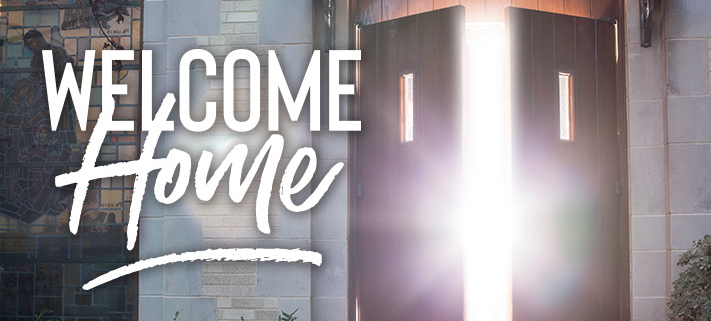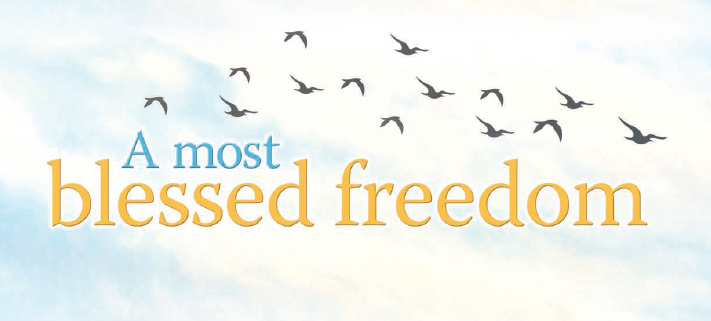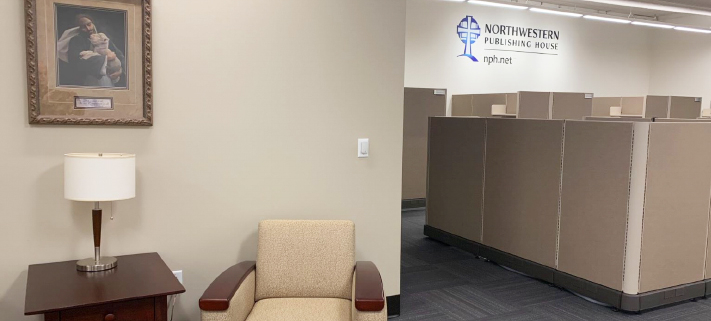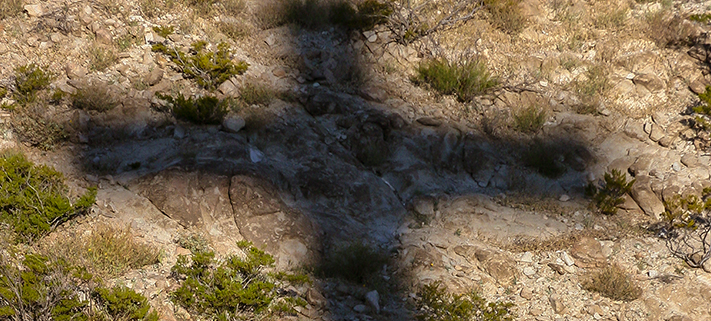Confessions of faith: Beasley
A woman finds true peace after learning about God’s full forgiveness and grace.
Alicia A. Neumann
“Never have I felt so loved, valued, and taught correctly in my life.” Those are the words of Gina Beasley, member at The Vine, Couer d’Alene, Idaho. Gina was raised in The Church of Jesus Christ of Latter-Day Saints (LDS) and never thought that someday she’d be part of a small, Lutheran mission church.
Growing up Mormon
Gina was the youngest of eight kids and went to church every Sunday with her family. She says she always grew up having faith in God and Jesus, but “there were a lot of morals and standards to live by,” Gina remembers. “I didn’t want to disappoint my parents or do anything bad or wrong.” Based on what she was taught, Gina says that God’s love seemed conditional. “It was, ‘Do this or you won’t live with your family in heaven,’ ” she says. “And that’s a tough one to swallow when you make mistakes.”
After high school, Gina moved to Utah to get a job. She met a man who converted to Mormonism, and they got married in the Mormon Temple. However, after three years, they divorced. Around that time, Gina started withdrawing from the Mormon church. “I wanted to go out with my friends on the weekends. I wanted to participate and have a drink. But I felt guilty because drinking was against the LDS Word of Wisdom. It was against their standards,” she says.
Eventually she met Jason, who was Catholic. After they started dating, they talked about religion. “I wanted to see if our religious philosophies matched up; that was critical,” says Gina. So Jason read the Book of Mormon twice and visited Temple Square in Salt Lake City, but he wasn’t sure he wanted to join. “He said he didn’t feel quite right about it,” Gina says.
Finding WELS
A few years went by and Jason and Gina hadn’t made any substantial decisions about religion. “We were working a lot, and honestly we wanted to sleep in on the weekends,” says Gina.
It was around that time that Jason’s longtime boss, a WELS member, invited them to St. Matthew’s in Spokane, Wash.
“Ron was kind of like a father figure to Jason,” says Gina. “We had a really nice relationship with him and his wife, Margot.” Gina says she really appreciated how Ron and Margot invited them to church in a way that didn’t make them feel pressured, so the Beasleys decided to give it a try. “We would go with them every once in a while,” says Gina. “I felt really good in my heart about the messages I was hearing in the sermons. Finally, we decided we should just start going to Ron and Margot’s church. It just felt like it was where we needed to be, spiritually.”
Eventually they started taking a Bible Information Class at St. Matthew’s, which was about an hour drive for the Beasleys. “I loved how the messages we were learning were straight up from the Bible,” says Gina. “Even though I had heard them before, I had never fully grasped and understood them.”
One of the lessons was especially eye-opening for her. “We were talking about God’s grace. Pastor said it’s like an umbrella; you just step under it, and you’re protected from the rain.” Gina says this was so different from what she’d been taught growing up—that you have to “do” something to receive God’s full grace and be able to go to heaven. She says she had always felt guilty and worried as a result. “But in that moment, I felt truly forgiven; it took off the huge backpack of rocks I felt like I was carrying. The guilt and shame were gone, and I felt peace,” she says. “I am so grateful every day that we decided to go to that class.”
Gina has been trying to share that same peace with her family members, who are all still part of the Mormon church. “I see them once a year, and I try to put my little words of love in there if we are talking about religion,” she says. “In the past when we’ve talked about grace, they’ve said, ‘Gina you are right,’ but they aren’t living that. They are living good works. I think deep down they know what’s right, but they are still on that hamster wheel of trying to get to heaven.”
Gina hopes that someday her family realizes that they don’t have to be perfect and that God’s grace is not conditional. “I’m trying to help them understand and accept God’s grace and get the ultimate peace,” she says.
Thriving at The Vine
A few years after the Beasleys got married, St. Matthew’s began a new ministry—a mission church called The Vine in Couer d’Alene, Idaho, which was only 20 minutes away from them. “It’s been great being part of a small, mission-style church,” says Gina. She still struggles with Mormon teachings from time to time, and she appreciates being able to talk to her pastor anytime and ask him questions. “I also get to sing with the worship band and really utilize my talents. It makes me feel fulfilled,” Gina says.
In addition to participating in the church’s outreach activities, the Beasleys now host a Bible study twice a month. “I invite people I’ve established a relationship with,” says Gina. “If you earn people’s trust first, they are more apt to come.” She says some people are afraid to come to a class if they feel like they’re committing to something, so the Beasleys use a curriculum from their pastor that makes it easy for people to join in when they can.
Gina also has had opportunities to share her journey of faith through connections she made with other moms at the local preschool her son attended. “A couple of new friends from the preschool have met me and asked if I am Mormon because they used to be Mormon too. It’s been kind of interesting discussing my upbringing with them,” she says.
Gina says her upbringing has made a big impact on how she’s raising her own kids. “When I grew up, I would hear people ‘give their testimony’ at church. And as kids, they would teach us the exact words to say,” remembers Gina. She says it would have been much more helpful to learn why it’s important to pray and how to pray from the heart. “So, I really try to be open with my children and talk to them about the reasons we believe what we do and provide them with factual structure,” she says.
Gina says it’s been really amazing to see what God has done for her and her family. “I am just so grateful for how God has orchestrated it all,” she says. “Someday when I’m an old lady in my rocking chair, I will look back at how God has connected all the dots and think, ‘Wow!’ ”
Alicia Neumann is a member at Christ, Zumbrota, Minnesota.
Learn more about the home mission The Vine, Coeur d’Alene, Idaho, is this month’s edition of WELS Connection.
SUBMIT YOUR STORY
Do you have a manuscript, idea, or story from your own life you’d like to share for use in Forward in Christ or on wels.net? Use our online form to share it to our editorial office for consideration.
SUBSCRIBE TO FORWARD IN CHRIST
Get inspirational stories, spiritual help, and synod news from Forward in Christ every month. Print and digital subscriptions are available from Northwestern Publishing House.
Author: Alicia A. Neumann
Volume 106, Number 8
Issue: August 2019
Copyrighted by WELS Forward in Christ © 2021
Forward in Christ grants permission for any original article (not a reprint) to be printed for use in a WELS church, school, or organization, provided that it is distributed free and indicate Forward in Christ as the source. Images may not be reproduced except in the context of its article. Contact us









